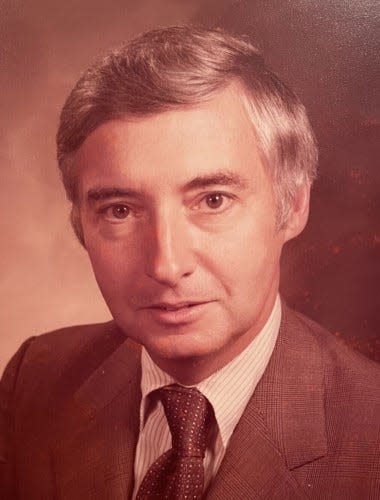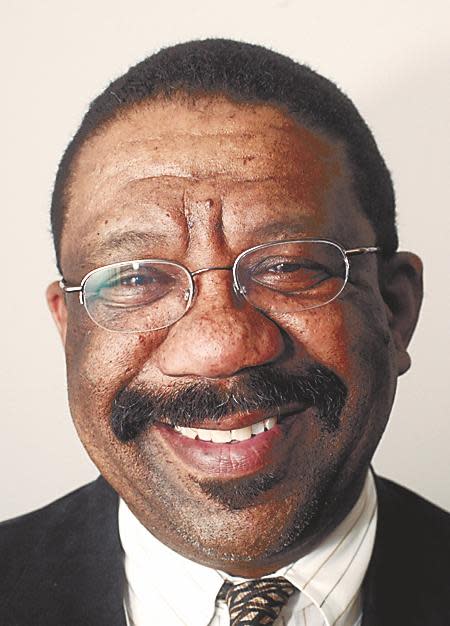Federal judge whose ruling set up Springfield's commission form of government dead at 93

U.S. District Judge Harold Baker, who sided with the plaintiffs in finding Springfield's commission government in violation of the federal Voting Rights Act, died at his home in Champaign on Sept. 18.
He was 93.
In the landmark Springfield case, plaintiffs argued that the commission form, with a mayor and four commissioners in charge of utilities, public safety, public works and finance, kept minorities from getting elected. Under that model, no Blacks had been elected to those offices from 1911 to 1987.
More: 'A beautiful woman inside and out:' Wenonah Bish turns 111 and shares secrets to longevity
Baker's ruling in 1987, capping the years-long case, set up the present mayor-aldermanic system of government.
"It was a very hotly contested case . . . and I thought that the compromises that were made were well made," Baker told The State Journal-Register at a swearing-in ceremony for city officials in 1991.
"The proof is here. It has worked to the benefit of the city (by) the fact that you have minority representation on the council."
The lead plaintiff in the voting rights case, Frank McNeil, was one of two Black plaintiffs, along with Allan Woodson, to be elected to the first aldermanic city council in 1987. McNeil represented Ward 2 and Woodson represented Ward 10.
More: Audit of Illinois DCFS finds delayed reports of child abuse, torture, death
Both were re-elected in 1991 when the first alderwoman, Gwenn Klingler in Ward 7, was also voted in.
The other plaintiffs in the original lawsuit, Rudy Davenport and William Washington, have both passed away.

Reached over the weekend, McNeil called Baker "the epitome of what we look at as fairness and justice in the U.S."
"Having a judge to apply the law fairly was what we were looking for and he did that," McNeil added. "He really made an impact on my life and the lives of a number of people here in Springfield, and I think he made life better for a lot of people here."
Baker, McNeil added, was from Champaign, "so he didn't have a stake in Springfield. He didn't bring the politics of Springfield into the decision-making."
Still, minority communities, McNeil said, have to be "continually vigilant in trying to maintain what we achieved 30-plus years ago."
Baker, who was appointed to the federal bench by President Jimmy Carter in 1978 upon the recommendation of Illinois Sen. Adlai Stevenson III, was still active on the Central District of Illinois in Urbana up until 2022. He took senior status in 1994.
Baker succeeded J. Waldo Ackerman as chief judge of the Central District of Illinois serving from 1984 to 1991.
More: Sangamon County opens investigation into how a Carlinville funeral home handled cremations
A native of Westchester County, New York, Baker earned his bachelor of arts degree from the University of Illinois Urbana-Champaign. He received his juris doctor from the U of I College of Law, where he would later serve as an adjunct professor.
Baker was in private practice for 22 years before his federal appointment.
There is no funeral planned.
Contact Steven Spearie: 217-622-1788; sspearie@sj-r.com; X, twitter.com/@StevenSpearie.
This article originally appeared on State Journal-Register: U.S. District Judge Harold Baker has passed away
